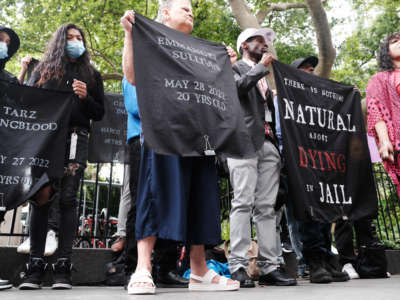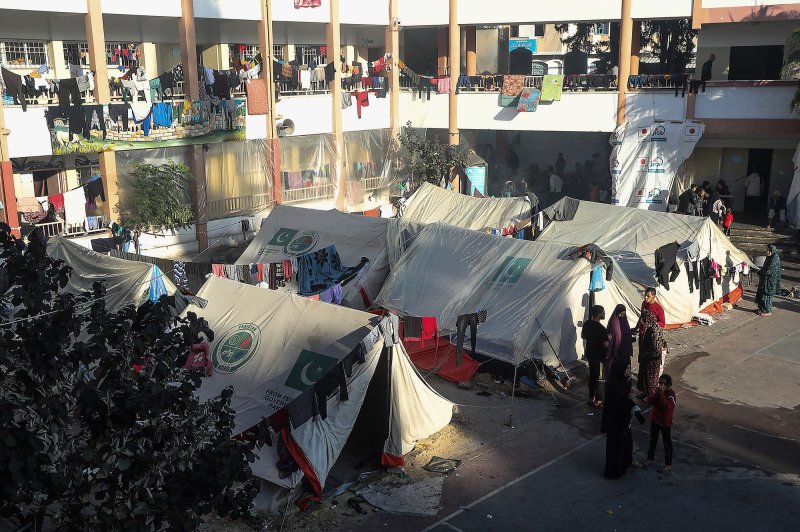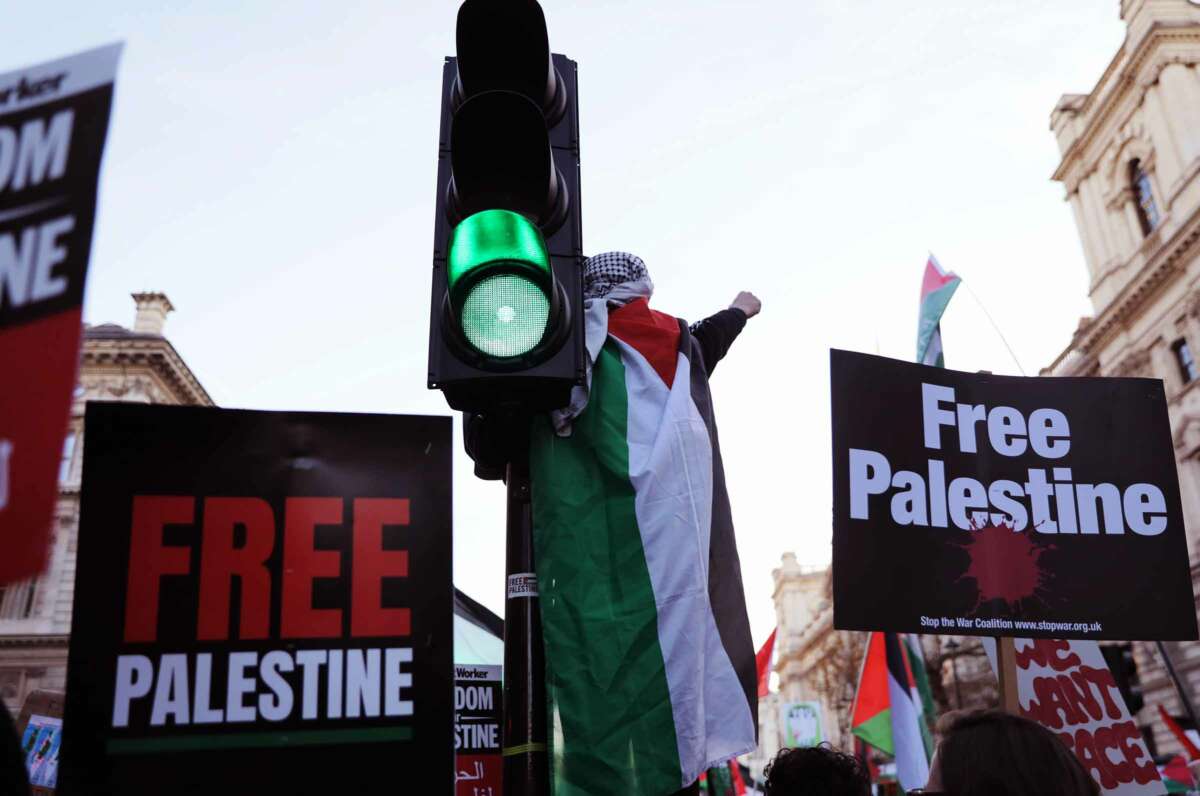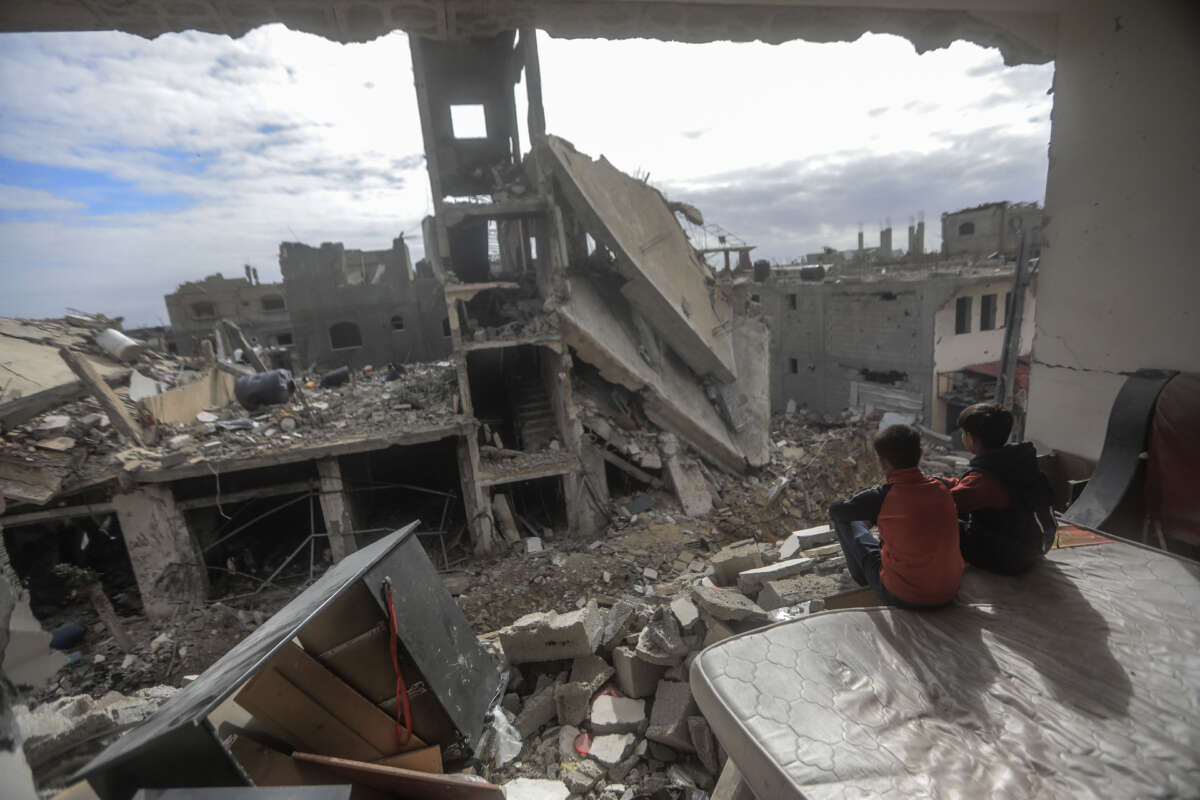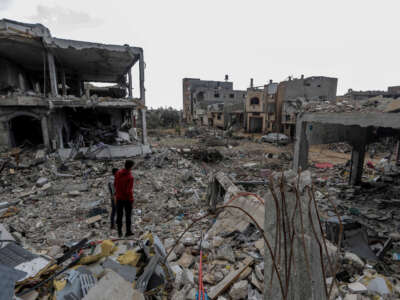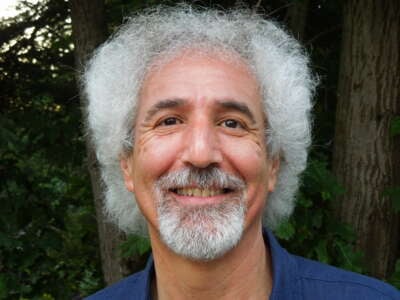Two-thirds of U.S. breaches of the civil and political rights covenant involve racial discrimination.
By Marjorie Cohn ,
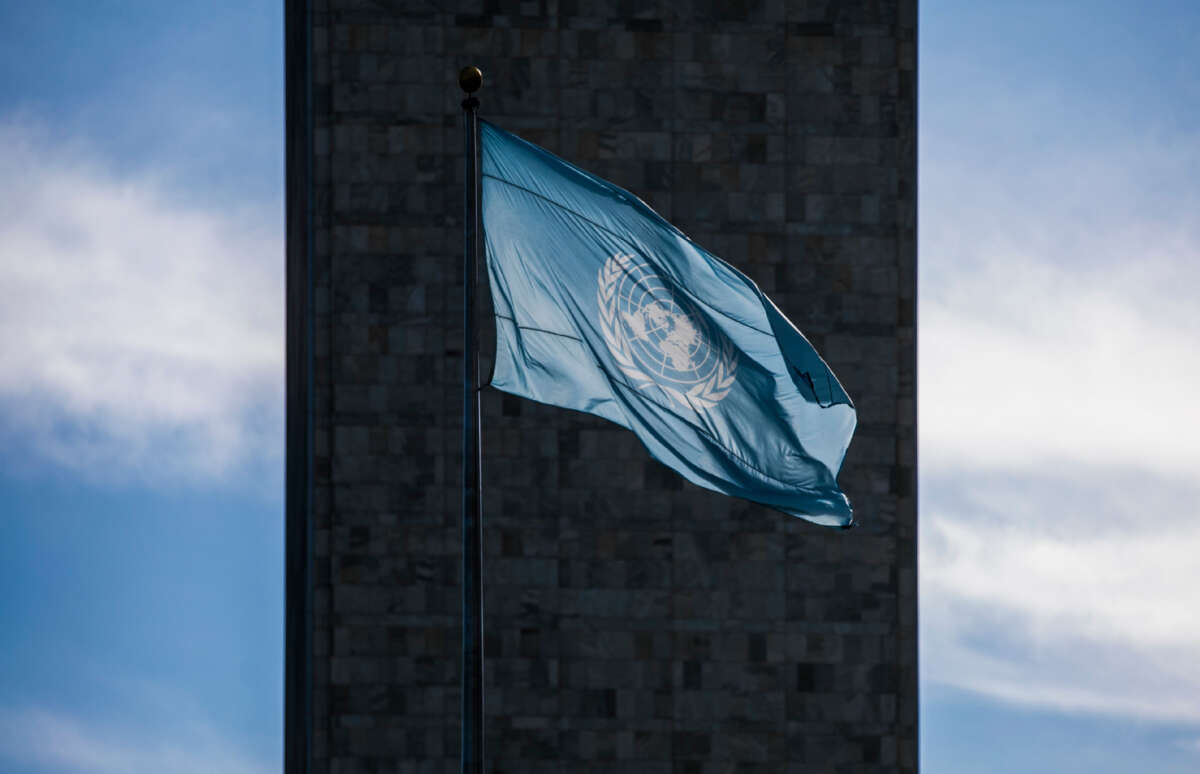
A United Nations body has issued a damning report blasting the United States for its rampant violations of a major human rights treaty that it ratified in 1992.
The International Covenant on Civil and Political Rights (ICCPR) enshrines the rights to life, to vote, and to freedom of expression and assembly; and the prohibition of torture and cruel, inhuman or degrading treatment or punishment. It forbids discrimination in the enjoyment of civil and political rights based on race, color, sex, language, religion, political or other opinion, national or social origin, property, birth or other status (which includes sexual orientation).
In its blistering November 3 report, the UN Human Rights Committee — a group of 18 independent experts that monitors the implementation of the ICCPR — documented how little the U.S. has done to challenge the systemic, wide-ranging racism that continues to infuse every aspect of our society. Racial discrimination permeated two-thirds of the documented U.S. violations of the human rights treaty.
Jamil Dakwar, director of the ACLU’s Human Rights Program, called the UN report “scathing.”
“The United States touts itself as a beacon of democracy and human rights, yet the Committee’s findings prove that this could not be further from the truth, underscoring the critical need to prioritize and strengthen human rights at home and establish a National Human Rights Institution to ensure that our most basic rights are protected,” Dakwar said in a statement.
RELATED STOR
An activist coalition is urging UN experts to call for the abolition of “life without parole” sentences in the U.S. By Marjorie Cohn , TRUTHOUT September 15, 2022
Here are some of the committee’s “Concluding Observations,” which are the culmination of its periodic review in Geneva last month:
The committee expressed concern about violence — including mass shootings and hate speech — against Black people, Indigenous peoples, Latinos, Asians, Muslims and Jews, as well as migrants, asylum seekers and people targeted on the basis of sexual orientation and gender identity.
An increase in gun-related deaths and injuries disproportionately affects racial and ethnic minorities, as well as women and children, the committee noted. It recommended strengthening legislation requiring background checks and banning assault weapons.
Discrimination based on sexual orientation and gender identity concerned the committee, which condemned the increase of severely restrictive state legislation, including criminalizing gender-affirming health care for transgender persons, and limiting discussions on sexual orientation and gender identity issues in school. The committee urged that discriminatory state laws be repealed and that the U.S. intensify its efforts to combat violence and discrimination in access to housing, health, employment and in detention facilities.
Criminalization of homelessness and violence against unhoused persons disproportionately impact people based on their race, real or perceived sexual orientation and gender identity, and disability. The committee, which cited “violence against homeless persons” who are at “higher risk of premature death” due to homelessness, recommended the abolition of laws criminalizing homelessness.
The report zeroed in on racial profiling, citing violations by law enforcement officials, including Customs and Border Protection, and Immigration and Customs Enforcement, as well as the targeting of ethnic and racial minorities, particularly Black people, Indigenous peoples, Latinos and Muslims.
Police brutality and the excessive and deadly use of force by law enforcement officials have a disparate impact on Black, Latino and Indigenous peoples, as well as migrants and asylum seekers, the committee concluded. It urged bringing federal and state laws and policies into conformity with international principles on the use of force and firearms by law enforcement and UN guidelines on less lethal weapons in law enforcement.
The report noted the overrepresentation of racial and ethnic minorities in the criminal legal system. They are disproportionately held in pretrial detention and placed on probation and parole, and are more often subject to prison labor and harsher sentences. The committee recommended reducing unnecessary criminal justice interventions, increased use of alternatives to incarceration, reasonable bail requirements, and parole and probation sentences that are necessary and proportionate to the offense.
Racial disparities in the imposition of the death penalty were also of concern to the committee, which recommended a moratorium at the federal level and concrete steps toward the abolition of capital punishment. U.S. officials were urged to strengthen safeguards against racist and wrongful sentencing and execution. Life imprisonment without possibility of parole (LWOP) similarly disproportionately affects Black people. The report also urged the U.S. to prohibit and abolish LWOP for juveniles and consider imposing a moratorium on the imposition of LWOP sentences.
The Committee was also concerned about discrimination on the basis of nationality, including residual effects from Donald Trump’s now-revoked “Muslim ban.” Prolonged delays in family reunification and a backlog of visa applications persist. The committee suggested an accessible, fair and effective reconsideration process for all visa applicants who continue to be affected by the ban, and additional measures to prevent future discriminatory bans.
Of grave concern were recent U.S. policies that “excessively restrict” effective protection of the right to seek asylum. The committee was concerned that they may breach the principle of non-refoulement, which prohibits returning someone to a country where there is a substantial risk they will face torture, cruel, inhuman or degrading treatment or punishment. The report also points to mandatory and prolonged detention, lack of access to counsel and poor detention conditions, leading to the deaths of many detained people.
More than 5,000 children were forcibly separated from their parents at the southern U.S. border, and hundreds still remain separated. The committee urged the U.S. to redouble its efforts to reunite all separated children with their families and prohibit future family separations.
Children belonging to racial and ethnic minorities are overrepresented in the child welfare system, and police presence in schools — part of the “school-to-prison pipeline” — disproportionately affects children of color. The committee advocated eliminating discriminatory bias in student discipline.
The committee was concerned about human trafficking, including children, as well as the criminalization of victims of trafficking and limited access to effective protection, particularly for noncitizens who are at risk of becoming victims of forced labor. The committee recommended on-site inspections, especially in the agricultural sector, as well as measures to prevent the criminalization of sex trafficking victims.
The committee also highlighted violence against women, including domestic and sexual violence. Victims disproportionately include low-income women; Black, Latina and Indigenous women; incarcerated women; and women with disabilities. The committee recommended effective implementation of the Violence Against Women Act and encouraged states to pass legislation prohibiting and criminalizing female genital mutilation. The report added that the U.S. should redouble its efforts to protect against sex- and gender-based discrimination through the Equal Rights Amendment and should consider ratifying the Convention on All Forms of Discrimination Against Women. Missing and murdered Indigenous women and girls, and the lack of comprehensive data and resources, which hinders effective and culturally appropriate investigations, were also cited.
The report noted that the U.S. has the highest maternal mortality rate among developed nations, which particularly affects women of color. It cited the “immediate and devastating impact” of the U.S. Supreme Court’s decision in Dobbs v. Jackson Women’s Health Organization on access to safe and legal abortion, including racial and ethnic disparities in reproductive health. The committee was alarmed at the criminalization of health care providers and people, including family members, who assist women in obtaining abortions, and was deeply concerned about restrictions on interstate travel for abortions, bans on medication abortion and surveillance of those seeking abortion care.
Another focus was the lack of protection of Indigenous lands and sacred sites from extractive industries, toxic and nuclear waste, and military infrastructure. The committee exhorted the U.S. to ensure meaningful and good faith consultations with Indigenous peoples and ensure their active participation to obtain free, prior and informed consent before taking any measures that can substantially affect their rights, way of life and culture.
The committee was concerned that climate change could threaten the right to life. It said it regretted that the U.S. failed to provide specific information about what measures have been taken to protect the most vulnerable people from the negative impacts of climate change and natural disasters. The committee cited concerns about “various water crises” in the U.S., such as the leaking of high levels of lead into water systems and outbreaks of Legionnaires’ disease in Flint, Michigan, disproportionately impacting Black and Indigenous peoples. The committee called on the U.S. to intensify its efforts to prevent and mitigate the effects of climate change and environmental degradation.
Voter suppression was also a major focus of the report, which cited partisan gerrymandering, voting restrictions and burdensome voter ID requirements. These policies have a disproportionate impact on low-income voters, persons with disabilities, and racial and ethnic minorities. The committee also criticized disenfranchisement laws targeting those with felony convictions and the role of dark money in elections.
The committee noted that freedom of assembly was in peril, citing the use of anti-terrorism laws to prosecute peaceful protesters, including anti-racism demonstrators, environmental activists and Indigenous protesters. The committee was also critical of excessive force by law enforcement officers, surveillance, arbitrary arrests and mass detention of peaceful demonstrators.
The report also mentioned the threat of anti-boycott laws that sanction those who boycott foreign countries and corporations for their human rights violations, likely referring to the Boycott, Divestment, Sanctions movement to pressure Israel to end its occupation of Palestinian territory. The committee recommended that officials refrain from attacking journalists and review anti-boycott laws that may restrict freedom of expression.
The committee condemned the continuing U.S. practice of killing in extraterritorial counterterrorism operations with armed drones, and the lack of transparency and accountability for the serious harm it causes, especially to civilians. It pushed for compliance with the principles of precaution, distinction and proportionality in armed conflict, and reminded the U.S. of its obligations under international human rights law and international humanitarian law.
The committee was concerned about the extensive use of solitary confinement, including prolonged and indefinite confinement. It recommended prohibition of solitary confinement for juveniles and people with intellectual or psychosocial disabilities in prison.
Some of the detainees at Guantánamo Bay have been held there without charges or trial for more than 20 years. The committee recommends that the U.S. expedite the transfer of detainees and close the prison at Guantánamo. It also urged the U.S. to end its system of administrative detention without charge or trial and ensure that detainees are afforded fair trial rights and specialized health care.
The United States must thoroughly investigate, prosecute and punish violations of the ICCPR and provide effective remedies for victims and their families, the committee said, condemning the impunity of violators, including perpetrators and people in positions of command, as well as lawyers who “provided legal pretexts for manifestly illegal behavior.” The committee was likely referring to John Yoo, Jay Bybee, and other lawyers who wrote memos telling the George W. Bush administration how to torture detainees and get away with it. The committee deplored the widespread U.S. impunity for past human rights violations, including torture and “enhanced interrogation techniques.”
The committee also recommended that evidence and confessions obtained by torture be inadmissible in legal proceedings without exception.
In addition, the committee emphasized that the U.S. must incorporate its obligations under the ICCPR into its domestic laws at the federal, state, local and territorial levels, and once again called for the establishment of a national human rights institution.
“It is critical that the U.S. government take this opportunity to heed the United Nations’ recommendations and deliver on behalf of the American people — including immigrants, racial and ethnic minorities, women and girls, LGBTQ+ people, incarcerated people, Indigenous people, and other marginalized communities that are disproportionately impacted by the government’s continued violations,” ACLU’s Dakwar said.
The breadth of the U.S. violations of the ICCPR is overwhelming. The committee found breaches of the treaty in nearly every aspect of life in the United States. We should heed the committee’s recommendations and demand that our federal, state and local governments in the U.S. comply with our human rights obligations.
Copyright © Truthout.
MARJORIE COHN is professor emerita at Thomas Jefferson School of Law, former president of the National Lawyers Guild, and a member of the national advisory boards of Assange Defense and Veterans For Peace, and the bureau of the International Association of Democratic Lawyers. She is founding dean of the People’s Academy of International Law and the U.S. representative to the continental advisory council of the Association of American Jurists. Her books include Drones and Targeted Killing: Legal, Moral and Geopolitical Issues. She is co-host of “Law and Disorder” Radio.
The federal appellate court upheld an earlier ruling by an Austin federal judge to remove the 1,000-foot-long barrier the state deployed near Eagle Pass.

Anti-immigration buoys that were placed in the Rio Grande River by the state of Texas must be removed, a federal appellate court panel has ruled. File Photo by Adam Davis/EPA-EFE
Dec. 2 (UPI) -- A federal appellate court panel has ordered Texas to remove the floating barrier it deployed in the Rio Grande at Eagle Pass this summer, affirming a lower court's ruling.
In a 2-1 decision issued Friday, a panel of the Fifth Circuit Court of Appeals found that the river is navigable where the barrier was placed and that it is "an obstruction," meaning that Texas needed to receive permission from the U.S. Army Corps of Engineers -- which regulates activities in waterways and wetlands under federal law -- before deploying it.
Judge Don Willett, a Trump appointee, was the dissenting vote in the ruling, arguing that the Rio Grande cannot accommodate commercial boat traffic and is therefore not navigable.
Texas argued that the barrier was also meant to save lives and force migrants to cross the border at ports of entry, but Willet said Texas hasn't proved that's the case.
Related
Biden administration waives 26 federal laws to build more border wall
Texas plans appeal as federal judge orders floating barrier moved in Rio Grande
"At this stage, however, Texas has not offered concrete evidence that the barrier has saved lives or reduced illegal crossings and drug trafficking," Willet wrote.
Texas Gov. Greg Abbott posted a statement on X calling Friday's ruling "clearly wrong" and said he and Attorney General Ken Paxton will seek an immediate rehearing by the entire Fifth Circuit. "We'll go to SCOTUS if needed to protect Texas from Biden's open borders," he said, referring to the U.S. Supreme Court.
The barriers sparked protests from the Mexican government and migrant advocates. In July, the U.S. Justice Department sued Texas in an Austin federal court, arguing that the barrier was installed without required federal authorization. Texas argued that the barrier was designed to direct migrants to appropriate entry points and deter unlawful crossings and drug smuggling.
San Antonio-based Federal District Judge David A. Ezra ruled in September that Texas must remove the barrier. The state appealed to the New Orleans-based Fifth Circuit, halting Ezra's order while the Fifth Circuit considered the case.
